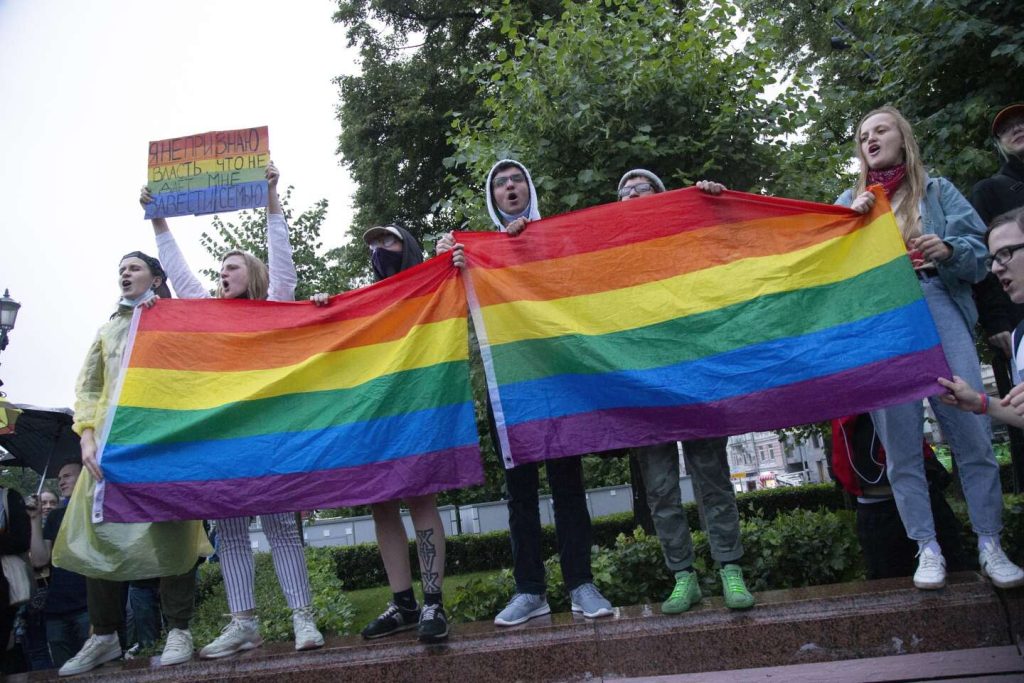Russian authorities have designated two officials of a recently arrested bar as “extremists and terrorists” for their involvement in LGBT+ activism, marking the first criminal case of this kind amidst a crackdown on sexual minorities in Russia. Diana Kamilianova, 28, and Alexandre Klimov, 21, were placed on the list of individuals declared “terrorists and extremists” by the Russian financial intelligence service, even before their trial. In November 2023, the Russian Supreme Court banned the “international LGBT movement” for extremism, a vague formulation that allows for heavy penalties.
Diana Kamilianova and Alexandre Klimov, who respectively serve as the administrator and artistic director of the Pose bar in the city of Orenburg, were arrested in March and charged with extremism based on this prohibition. They face a potential sentence of ten years in prison. In a raid on March 9, police officers entered the bar in the middle of the night, and a video of the scene showed individuals lying on the floor with their hands on their heads. Russian President Vladimir Putin has long promoted “family,” “traditional values,” and religion as opposed to what he perceives as a “decadent” West. However, since the large-scale attack on Ukraine in late February 2022, Russian authorities have increased their repression of sexual minorities.
In 2013, Russia passed a law prohibiting the “promotion” of “non-traditional sexual relations” to minors. This legislation was further expanded at the end of 2022, now prohibiting any form of LGBT+ “propaganda” in the media, online, in books, and in films. The Russian government’s stance on LGBT+ issues has become increasingly draconian, with the law targeting any form of advocacy or visibility for the community as potential criminal offenses. This crackdown has intensified following the conflict with Ukraine, with authorities using the pretext of upholding traditional values to justify their actions.
The situation faced by LGBT+ individuals in Russia reflects a broader trend of repression under Putin’s leadership, where dissenting voices and minority communities are increasingly marginalized and targeted by the state. The labeling of LGBT+ activists as “extremists and terrorists” is a dangerous escalation in the government’s crackdown on civil liberties and human rights. The criminalization of individuals like Diana Kamilianova and Alexandre Klimov sets a disturbing precedent for the treatment of marginalized groups in Russia, signaling a further erosion of democratic freedoms and protections.
The international community has expressed concern over the deteriorating human rights situation in Russia, with calls for accountability and respect for fundamental rights. The European Union, United Nations, and various human rights organizations have condemned the persecution of LGBT+ individuals and called for the release of those unjustly detained. The plight of Diana Kamilianova and Alexandre Klimov highlights the broader struggle for equality and acceptance faced by sexual minorities in Russia and underscores the importance of standing against discrimination and violence targeting marginalized communities. The situation also underscores the urgent need for action to protect the rights and dignity of all individuals, regardless of their sexual orientation or gender identity.















